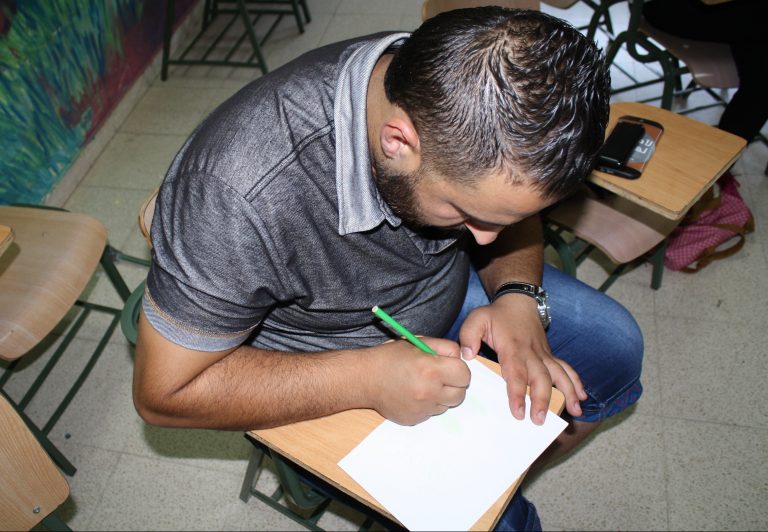Students Who Feel More, Learn More
This past week, my students performed skits acting out different community events. Students came to the front of the class and implored a parent to let them take a job in Jordan, confronted a neighbor about noise issues, or even groaned loudly from an illness the doctor could not treat. The goal was not only to see community events in action, but for students to feel the different emotions that these events bring about--to get them to express what another person is feeling.
Students engage in an art activity that connects colors with emotions.
Students’ ability to empathize and take on the perspectives of those different from them can be an extremely powerful tool for educators. In the article “Empathy and Education,” Norma Deitch Feshbach and Seymour Feshbach highlight the positive role of an empathy-driven curriculum for elementary students when they state, “Children who participated in the Learning to Care Curriculum became less aggressive, displayed more positive social behaviors, manifested a more positive self-concept, and also displayed a significant increase in academic achievement.” Harnessing students’ empathy in class is an important tool in secondary or adult education as well. Understanding and taking on the perspectives of other people gives students a richer understanding of the world and their place in it. It prepares them to be more effective, more caring agents in the world.
Students in TYO’s Step II! EFL program have embraced the idea of taking on multiple perspectives in the classroom and are utilizing empathy as a way to enhance their learning. I found it particularly helpful as a linguistic tool when addressing the theme of family with my students. Asking students to think about the different relationships of their family members and helping them to recognize that their uncle is also someone’s brother and someone’s son allows them to practice their knowledge of familial vocabulary as well as see their family members in a different light. They see that they share the same identifiers as others who may be generations older than them.
A student chooses green as his color to reflect the way that it gives off feelings of relaxation and happiness.
Taking on another’s perspective can still come with challenges. In an activity where students took on the perspective of a specific family member, some students were hesitant to assume a role different from their own gender. Yet as the activity went on, where students matched certain verbs with vocabulary from the house, the resistance wore off and students focused on matching different life tasks to their family members. They discovered the difficulty of making time for leisure activities when, as the daughter of the family for example, you have duties in both the house and school. The activity also doubled as pronoun practice, with the students having to focus on matching the gender with the family member vocabulary and not necessarily the gender of the person sitting in front of them reading the word.
What is most rewarding, though, is seeing students empathizing with other cultures as a way to reveal their shared experiences and struggles. Summer fellow Kyra Zimmerman reflects on an activity she did as a fellow last session, which she hopes to recreate this summer.
“During my class unit on public speaking,” says Kyra, “my students learned about MLK and the American Civil Rights movement. During this time, I saw the students connect greatly with MLK’s dream of racial equality and empathize with African Americans in the USA in the 1960s. This demonstrated to me that issues that face different communities can transcend borders and bridge different populations. I strongly believe my students had the same take-away from this unit as well.”
We here at the Step II! EFL program believe that our students can summon empathy that is both powerful and inspiring, and by tapping into this ability, our students are able to more effectively read the world and analyze its problems. This is an important skill for all students to have, irrespective of the country you are teaching in or the age of your students. A more caring classroom that seeks to understand others’ viewpoints can ultimately create a more peaceful world.
The English as a Foreign Language (EFL) program is part of STEP! II, a youth employability, empowerment, and community leadership initiative supported by Abdul Hameed Shoman Foundation.
-Darren, Summer 2016 EFL Fellow


